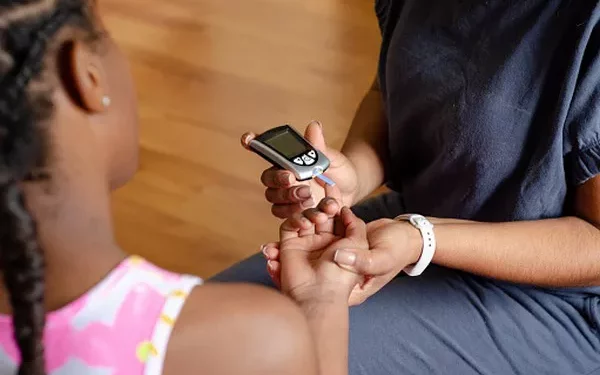Maintaining normal glucose levels is a crucial aspect of managing diabetes and overall health. Glucose, a type of sugar derived from the foods we eat, is the primary source of energy for our body’s cells. The regulation of glucose levels is vital for proper bodily function, and deviations from the norm can lead to significant health issues. This comprehensive article delves into what normal glucose levels mean, the importance of maintaining them, how they are measured, factors that influence these levels, and tips for achieving and sustaining normal glucose levels.
The Basics of Glucose and Its Regulation
Glucose is a simple sugar that enters the bloodstream after the digestion of carbohydrates. The pancreas plays a key role in regulating glucose levels by producing insulin, a hormone that helps cells absorb glucose from the blood. In individuals without diabetes, this system works efficiently to maintain glucose levels within a normal range. However, in those with diabetes, the body either doesn’t produce enough insulin, doesn’t use insulin effectively, or both, leading to abnormal glucose levels.
What Are Normal Glucose Levels?
Normal glucose levels can vary slightly depending on the time of day, the time since the last meal, and individual health conditions. However, standard ranges have been established to help gauge normal, prediabetic, and diabetic states.
Fasting Blood Glucose Levels
Fasting blood glucose levels are measured after an individual has not eaten for at least 8 hours. This test is typically done in the morning before breakfast.
Normal: 70-99 mg/dL (3.9-5.5 mmol/L)
Prediabetes: 100-125 mg/dL (5.6-6.9 mmol/L)
Diabetes: 126 mg/dL (7.0 mmol/L) or higher
Postprandial Blood Glucose Levels
Postprandial blood glucose levels are measured 2 hours after consuming a meal. This test helps evaluate how the body manages glucose from food.
Normal: Less than 140 mg/dL (7.8 mmol/L)
Prediabetes: 140-199 mg/dL (7.8-11.0 mmol/L)
Diabetes: 200 mg/dL (11.1 mmol/L) or higher
HbA1c (Glycated Hemoglobin) Levels
The HbA1c test provides an average of blood glucose levels over the past 2-3 months by measuring the percentage of glucose attached to hemoglobin in red blood cells.
Normal: Less than 5.7%
Prediabetes: 5.7% to 6.4%
Diabetes: 6.5% or higher
The Importance of Maintaining Normal Glucose Levels
Maintaining normal glucose levels is essential for several reasons. Consistently high blood glucose levels can lead to long-term complications such as cardiovascular disease, neuropathy, retinopathy, and kidney disease. Conversely, low blood glucose levels (hypoglycemia) can cause immediate issues like dizziness, confusion, loss of consciousness, and in severe cases, death.
Short-Term Effects of Abnormal Glucose Levels
Hyperglycemia (High Blood Glucose): Symptoms include frequent urination, increased thirst, blurred vision, fatigue, and headaches. In extreme cases, it can lead to diabetic ketoacidosis (DKA), a life-threatening condition.
Hypoglycemia (Low Blood Glucose): Symptoms include shakiness, sweating, rapid heartbeat, confusion, irritability, and in severe cases, seizures or coma.
Long-Term Effects of Abnormal Glucose Levels
Cardiovascular Disease: High glucose levels can damage blood vessels and increase the risk of heart disease and stroke.
Neuropathy: Chronic high glucose can damage nerves, leading to pain, numbness, or weakness, particularly in the extremities.
Retinopathy: High glucose levels can damage the blood vessels in the eyes, leading to vision problems and, in severe cases, blindness.
Nephropathy: High glucose can damage the kidneys over time, potentially leading to kidney failure.
Factors Affecting Glucose Levels
Several factors can influence blood glucose levels, including diet, physical activity, medication, stress, and underlying medical conditions. Understanding these factors can help individuals manage their glucose levels more effectively.
Diet and Nutrition
The type, quantity, and timing of food intake can significantly impact glucose levels. Carbohydrates, particularly simple sugars, are quickly converted into glucose, causing a rapid spike in blood sugar. Complex carbohydrates, fiber, and protein, on the other hand, have a slower effect on glucose levels.
High Glycemic Index Foods: Foods like white bread, sugary drinks, and pastries can cause rapid increases in blood sugar.
Low Glycemic Index Foods: Foods like whole grains, legumes, and vegetables have a slower, more gradual impact on glucose levels.
Physical Activity
Exercise can help lower blood glucose levels by increasing insulin sensitivity and promoting glucose uptake by muscles. Regular physical activity is an important part of managing diabetes and maintaining normal glucose levels.
Aerobic Exercise: Activities like walking, running, cycling, and swimming can help lower glucose levels.
Strength Training: Building muscle can improve insulin sensitivity and glucose metabolism.
Medications
For individuals with diabetes, medications like insulin and oral hypoglycemic agents are often necessary to manage blood glucose levels. The type, dosage, and timing of medication can affect glucose levels.
Insulin: Different types of insulin (rapid-acting, long-acting, etc.) have varying effects on glucose levels.
Oral Medications: Drugs like metformin, sulfonylureas, and SGLT2 inhibitors help control glucose levels by different mechanisms.
Stress and Hormonal Changes
Stress can cause the release of hormones like cortisol and adrenaline, which can raise blood glucose levels. Hormonal changes, such as those occurring during menstruation or menopause, can also affect glucose levels.
Illness and Medical Conditions
Illnesses and other medical conditions can impact glucose levels. Infections, for example, can cause blood sugar to rise. Additionally, conditions like Cushing’s syndrome or hyperthyroidism can affect glucose metabolism.
Monitoring Glucose Levels
Regular monitoring of glucose levels is crucial for individuals with diabetes. It helps track how well the treatment plan is working and provides information on how different foods, activities, and situations affect blood sugar.
Self-Monitoring of Blood Glucose (SMBG)
SMBG involves using a glucose meter to measure blood sugar levels at different times of the day. It helps individuals make informed decisions about diet, exercise, and medication.
Continuous Glucose Monitoring (CGM)
CGM systems use a sensor placed under the skin to measure glucose levels continuously. They provide real-time data and can alert users to high or low blood sugar levels, allowing for timely interventions.
HbA1c Testing
Regular HbA1c testing provides an overview of average glucose levels over a few months. It helps assess long-term glucose control and the risk of complications.
Achieving and Maintaining Normal Glucose Levels
Achieving and maintaining normal glucose levels requires a comprehensive approach, including a healthy diet, regular exercise, medication, and stress management. Here are some practical tips:
Dietary Tips
Choose Low Glycemic Index Foods: Opt for whole grains, legumes, and non-starchy vegetables to avoid rapid spikes in blood sugar.
Monitor Carbohydrate Intake: Keep track of carbohydrate consumption and distribute it evenly throughout the day.
Include Protein and Healthy Fats: Protein and healthy fats can help stabilize blood sugar levels and provide sustained energy.
Limit Sugary Foods and Drinks: Reduce the intake of sweets, sugary beverages, and processed foods.
Practice Portion Control: Be mindful of portion sizes to avoid overeating and excessive calorie intake.
Exercise Tips
Aim for Consistency: Engage in regular physical activity, aiming for at least 150 minutes of moderate aerobic exercise per week.
Incorporate Strength Training: Include strength training exercises at least twice a week.
Monitor Blood Sugar Levels: Check glucose levels before and after exercise, especially if using insulin or other medications.
Stay Hydrated: Drink plenty of water before, during, and after exercise to stay hydrated.
Medication Management
Follow Prescribed Treatment: Take medications as prescribed by a healthcare provider.
Monitor for Side Effects: Be aware of potential side effects and interactions with other medications.
Adjust Dosages as Needed: Work with a healthcare provider to adjust medication dosages based on blood sugar levels and other factors.
Stress Management
Practice Relaxation Techniques: Techniques like deep breathing, meditation, and yoga can help manage stress.
Get Adequate Sleep: Aim for 7-9 hours of quality sleep per night to support overall health and glucose regulation.
Seek Support: Talking to a counselor, joining a support group, or reaching out to friends and family can help manage stress.
Regular Check-Ups and Monitoring
Schedule Regular Check-Ups: Regular visits to a healthcare provider can help monitor glucose levels and overall health.
Perform Routine Tests: Regular HbA1c tests, eye exams, foot exams, and other screenings can help detect complications early.
Stay Informed: Stay updated on the latest information about diabetes management and treatments.
See also: Why Is My Dexcom Not Accurate?
Conclusion: The Path to Normal Glucose Levels
Maintaining normal glucose levels is a vital aspect of diabetes management and overall health. Understanding what normal glucose levels mean, the importance of achieving and maintaining them, and the factors that influence these levels can empower individuals to take control of their health. By adopting a balanced diet, engaging in regular physical activity, managing medications, and practicing stress management, individuals can achieve and sustain normal glucose levels. Regular monitoring and consultation with healthcare providers are essential components of this journey, helping to ensure that individuals with diabetes live healthy, fulfilling lives.
Related topics:
What’s the Maximum Fasting Blood Sugar Level



























